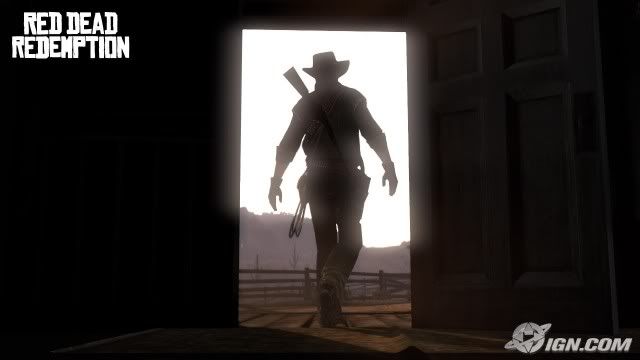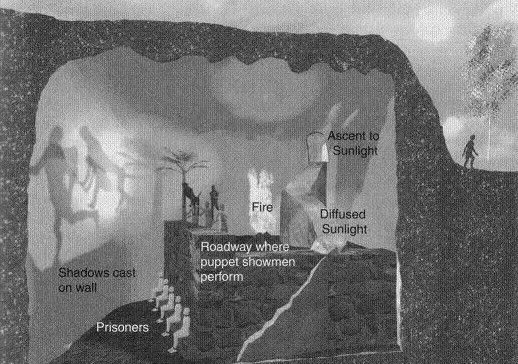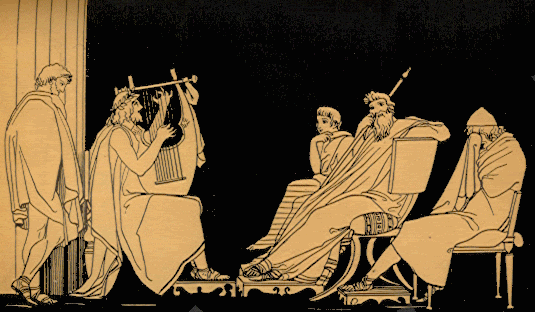 Here at last is the fifth in the PPP series. The skeleton of this post was written more than a year ago, but in writing it I realized that I was having a hard time expressing the ideas without jargon, a difficulty that I've learned to take as a warning sign that I haven't thought something through, and one which obviously stands in the way of sharing the idea with the broad audience I'm hoping it will build. With a few semesters of explaining this notion to students and friends behind me, I think I can push on down the road of the PPP.
Here at last is the fifth in the PPP series. The skeleton of this post was written more than a year ago, but in writing it I realized that I was having a hard time expressing the ideas without jargon, a difficulty that I've learned to take as a warning sign that I haven't thought something through, and one which obviously stands in the way of sharing the idea with the broad audience I'm hoping it will build. With a few semesters of explaining this notion to students and friends behind me, I think I can push on down the road of the PPP.When I left this series
hanging, so many months ago, we'd come to the end of the unpacking process as far as the definition of the PPP itself was concerned. In this post I’m going to get into the first corollary, a corollary so important as really to make it an essential part of the definition. Here’s the whole definition, again, as usual:
A PPP is an intersubjective performance that takes place in a cultural zone demarcated for play (that is, as not having a direct effect on material circumstances, although that demarcation does not mean in actual reality that material circumstances are unaffected). Within that zone conventions may be and usually are determined by rules analogous to the rules for the setting up of conventions in the misunderstood-as-unzoned “real world.”
The part I’m going to talk about in this post is the first part of the last sentence, which is about conventions within the zone of play, and their relation to what we usually think of as rules. I want to suggest that what we think of as “rules” and what we think of as the key elements of story-telling—genre, setting, plot, characters—are actually two varieties (flavors, even) of the same thing. Then, I want to suggest that that thing, whether it appears in a homeric epic or in a first-person shooter, gets its meaning from the way the PPP's participants (author, audience, designer, player) shape its relationship to the “real world” in their imaginations.
I think “rules” is as good a term as any, since rules and play are closely associated in a variety of areas, and play is the heart of the PPP. So I’ll keep using that word. Retaining “rules” also means that one end of the comparison is relatively neatly anchored—everybody has played games, and has an insinctual feel for what a rule is, even if "rule" remains hard to define exactly.
Interactive storyteller
Corvus Elrod defines a game-rule as "a precisely-defined relationship within the gamespace." ("Gamespace" is Corvus' term for what I would call a game's particular instance of the
zone of play.) This definition will seem abstruse at first, I think, but its usefulness appears quickly when we apply it, because it covers game-phenomena as diverse as "At the start of the player's turn, he or she roles the dice" and "When the player pushes the A-button in this situation, the player-character jumps" and "When the player has killed Andrew Ryan, he or she must disarm the self-destruct sequence for the story to proceed" and "If the player chooses those dialogue options, he or she will be given the opportunity to kill Carth Onasi." Each of those relationships is precisely-defined within the gamespaces of
Yahtzee (among many, many others),
Super Mario Brothers (among many, many others),
Bioshock, and
Star Wars: Knights of the Old Republic.
We have rules pretty much nailed down, then. The other end of the comparison, though, is still floating free—why am I saying that rules and the elements of a story are the same thing? The answer is simple, though it will take a while to make it fully persuasive: story-elements themselves are precisely-defined relationships within the zone of play. Let's take the most obvious of story-elements first—plot. Plot is what happens in the zone of play constituted by the story—that is, from one important perspective, plot is the precisely-defined relationship between each event and every other event in the story. In the
Iliad, for example, the plot of the beginning of Book 1 runs "Chryses comes to ransom his daughter; Agamemnon sends him away; Chryses prays to Apollo; Apollo sends a plague; Achilles calls a council." These events make the story not by themselves, but
in relation to one another.
Similarly, character is a set of precisely-defined relationships between parts of a story. This point is self-evident on an obvious level, because Achilles is for example the leader of the Myrmidons and the friend of Patroclus. More importantly, in my view at least, character is a precisely-defined relationship on a deeper level as well: Achilles is the Achilles of the
Iliad in that he is the greatest of warriors—that is, he stands precisely-defined in a relationship of superiority both to the other Achaeans of the
Iliad and to all the warriors the bard's audience knows. Setting goes the same way: the Achaeans' being encamped on the shore near Troy is expressible as the relationship of where the Achaeans are to where the Trojans are and to where the Achaeans came from. Invididual features like ships and tents are then placed by the PPP's participants (the bard in this case) in relation to that relationship.
Here we run into a question of enormous importance—one that in my opinion demonstrates how crucial the contribution of homeric epic can be to an understanding of how games work. If a seemingly static set of story-elements like the plot and characters of the
Iliad as we have it can be expressed in terms of rules, is there then no difference between interactive art and static art? (And, of course, if so, isn't that definition of "rule" clearly wrong?)
The answer is Yes, and No. (And No to the parenthetical question.) The nature of homeric epic is a wonderful guide here, because it demonstrates so clearly the transformation of interactive to static and back. Remember that what we have is a
fossil of a once-living tradition of bardic recomposition. The bard begins with a set of rules in the form of a skeleton of plot, characters, setting: because of the bardic tradition's development, he sings within a set of precisely-defined relationships. Achilles for example isn't allowed actually to leave Troy. Achilles is the leader of the Myrmidons. The Achaeans are encamped on the shore near Troy. The bard may order events differently, change details of characters and details of setting, but he may not change the basic course of the story, just as the player of a game like
Halo may sometimes do things in a different order, may play the Master Chief as reckless or cowardly, may experience different elements of the landscape the designers have made, but must always do the same things—and in the end, were someone to make a video, or write an account, that player will have produced a static version of the game/story.
The counter-intuitive truth is that that interaction between the participants of a PPP and the rules and story-elements of that PPP produces what looks like a static narrative, but that that static narrative
is not actually a different sort of thing, but is rather yet another set of rules for the production of yet another version of the PPP. What looks like a static narrative, when turned into an intersubjective performance by, say, a reader, becomes a new—crucially,
constrained in different ways—story or game.
Where does it get us to express the analogy between game-rules and story-elements? It allows us to approach, yes, the
relationship between things like interactivity, immersion, and narrative in what I think is a more meaningful way. Among other things, it gets us completely beyond the notion that there's any fundamental split between gameplay and story. To think about rules and things like plot and character this way also helps us talk about the way that events in the zone of play relate to events in the "real world," and what that relation can mean to participants in PPP's.
In the next post, which will hopefully come without such a long hiatus, I'll start exploring the relationship between game-rules/story-elements and stuff in the "real-world." An understanding of games and stories as both being examples of PPP's can get us to some interesting places, I believe, in the intersection of ludonarrative art with the lives we live outside the zone of play.











